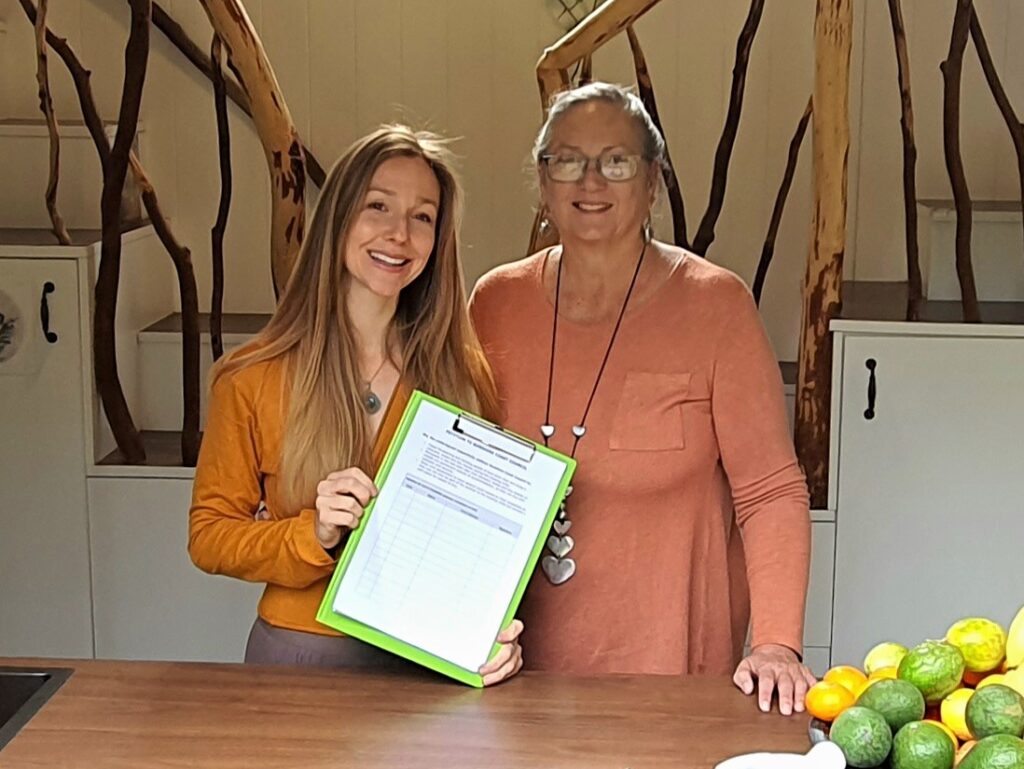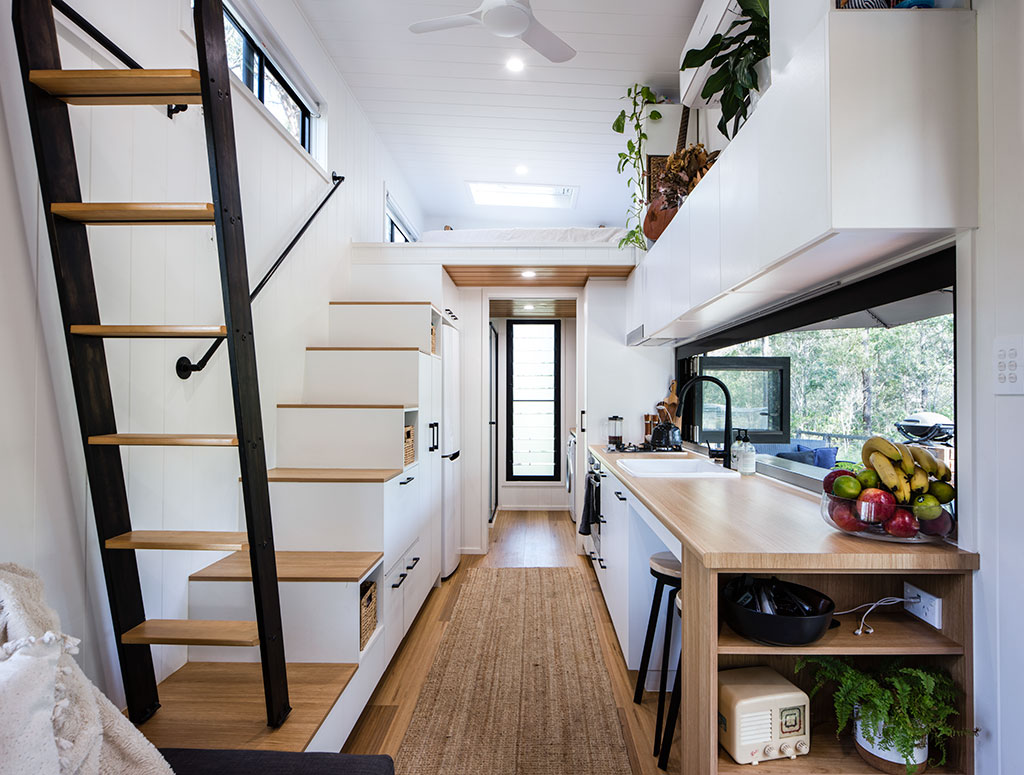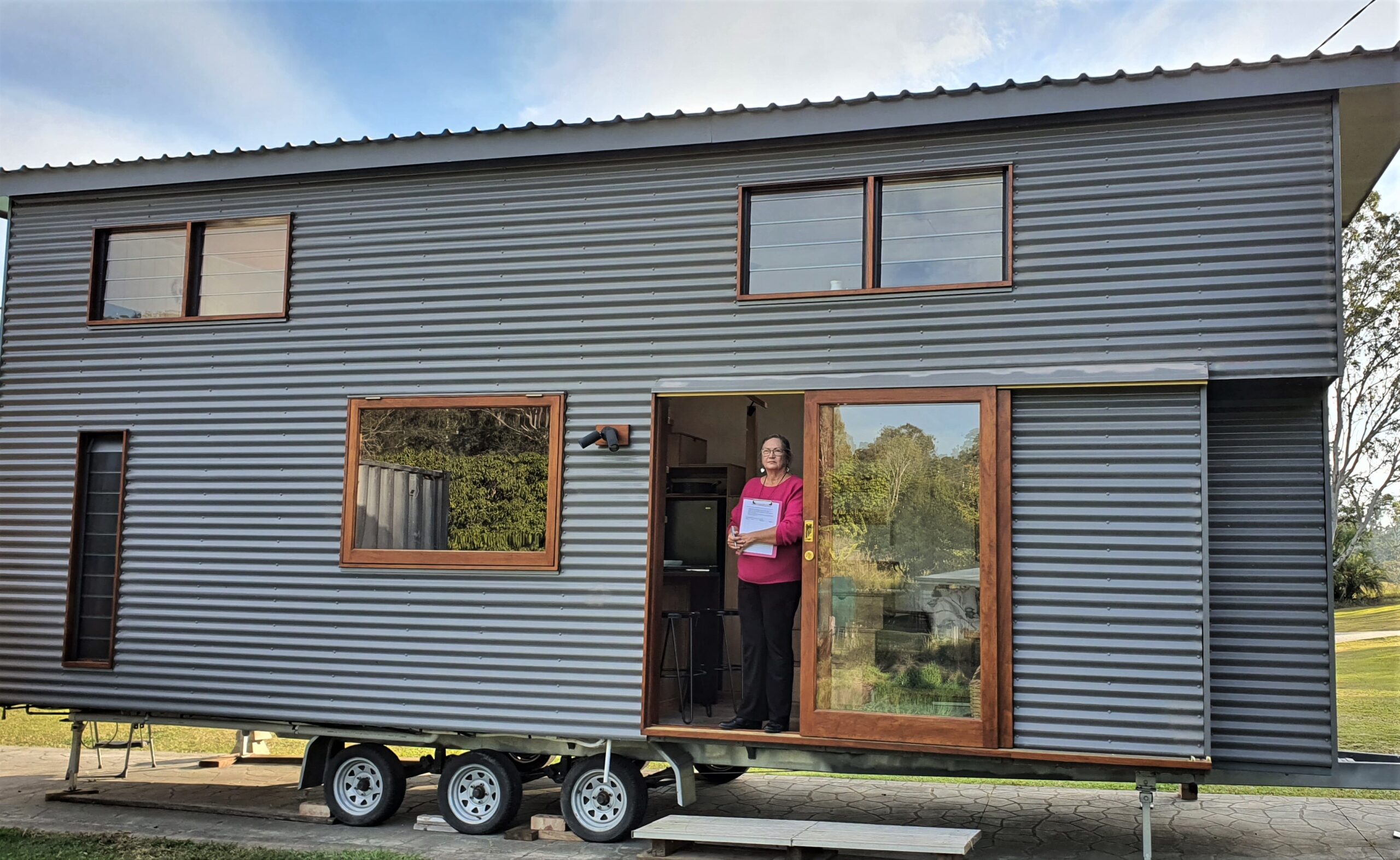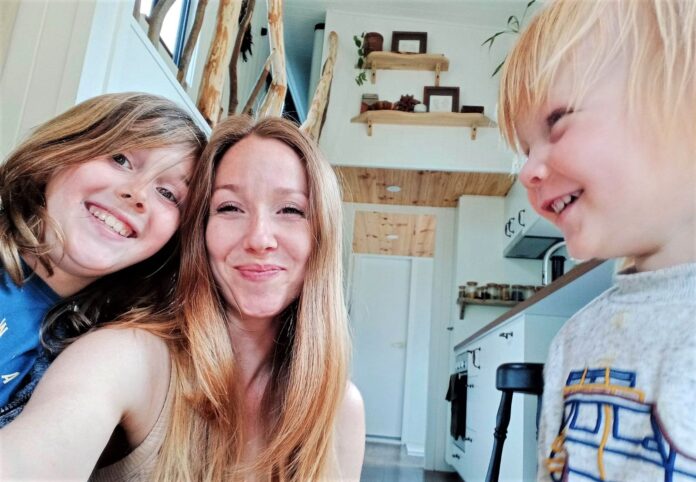Belli Park’s Jacqueline Morton fears Sunshine Coast Council will evict three families living in temporary accommodation on her rural property in what would be a heart-wrenching move just before Christmas.
The council sent eviction notices to four families to leave their tiny homes on the 13-hectare property by August 31.
After Sunshine Coast News and Nine’s A Current Affair took up their fight in the lead-up to the August 31 deadline, Ms Morton received various correspondence from the council.
The council pushed back the eviction date to October 30 and later acknowledged further information would arrive by November 13, then November 30.
Do you have an opinion to share? Submit a Letter to the Editor at Sunshine Coast News via news@sunshinecoastnews.com.au. You must include your name and suburb.
One family with three young children, who were living in a bus, moved further north after receiving the eviction notice. But two single mothers – one with special needs twins, and another with boys aged 12 and three – in tiny houses, and another woman in a caravan, remain on the property.
Under local laws, the council requires people temporarily living in a tent, car, caravan or mobile home on someone’s land to apply for a permit, which lasts 18 months. A permit must be granted for a tiny home to stay longer than four weeks in a 52-week period. Earlier this year, council waived the permit fee of $514 for people experiencing financial hardship.

A Sunshine Coast Council spokesperson said a tiny house was not a land use but a type of structure or vehicle, and that tiny houses could already be used in a range of circumstances (such as a dwelling house or secondary dwelling) and in a range of settings.
“Under the Queensland Government’s Planning Regulation 2017 there are restrictions on many types of residential uses in rural areas, and where tiny houses form part of these uses they would be subject to these restrictions,” they said.
“There is a complex interaction between local laws and planning legislation which means council cannot regulate tiny houses as temporary dwellings if they are otherwise more appropriately determined to be a form of residential development that is either restricted in rural areas by the planning regulation or ordinarily requires a planning approval under the planning scheme.
“The state government recently announced it is looking into issues associated with the regulation of so-called temporary dwellings. Council will monitor the outcome of this review and will consider whether it modifies the current regulatory framework.”
The spokesperson said there would be opportunity for feedback on the new planning scheme when the public comment period commenced next year.
“When public comment does begin, it will be for a period of at least 40 business days,” they said.
Ms Morton, a lead campaign petitioner, said various paper petitions had been circulated, seeking changes to local laws on temporary accommodation in the current housing crisis.
She believed almost 1000 signatures had been obtained and submitted to the council.
But living fortnight to fortnight is taking its toll on her tenants.
“It’s leaving the girls a little bit in limbo. It’s a lot of mental anguish for them, wondering what’s happening,” Ms Morton said.
“Councils have to wake up that we’re in a different economic situation in Australia now and the cost of living, along with the housing crisis, is making it impossible for people. At the very least, they have a right to have a roof over their head.
“We’re just playing the waiting game at the moment and I guess what action we take next will depend on what council come back to us with.”
Meanwhile, another Coast tiny home advocate has warned that state and local government red tape and inaction over temporary accommodation on private land is worsening the housing crisis.

Coes Creek resident Helen Andrew was the principal petitioner on an October 10 ePetition to state parliament seeking long-term security for those choosing to live permanently in tiny homes on wheels, buses and caravans. The petition garnered 5373 signatures.
Ms Andrew said that dealing with both levels of government on the issue was like going around in circles.
The petition requested the state government recognise buses, tiny homes on wheels and caravans as permanent housing choices and to “do everything in its power to cause a change in local town plans across Queensland” to allow rural landowners to host those tenants.
Scroll down to SUBSCRIBE for our FREE news feed, direct to your inbox daily.
Ms Andrew – a landowner who saw her own tiny house tenant evicted following a neighbour’s complaint – believes immediate changes can be made to state and local planning laws that would ease the housing stress.
Solving the problem, however, has become somewhat of a political tennis match, with each level of government saying the ball is in the other’s court.
In response to the ePetition, Deputy Premier and Minister for Local Government and Planning Steven Miles said he was aware of the popularity of tiny homes and how they could contribute to the overall solution of addressing housing challenges, but he put much of the responsibility back on local councils.

Mr Miles said that given the overall interaction of this type of development with both the local government and planning frameworks, he had “asked both the planning and local government areas of my department to work together to consider the recent innovations in tiny homes and provide advice on any new guidance necessary to better plan for these types of homes”.
It is understood, however, that changes to the planning regulations are not being considered – only ways to further educate the community on planning, building and local laws with tiny homes in mind.
One of the sticking points is that, for health and safety reasons, tiny homes are required to be connected to water and sewer.
Mr Miles told Sunshine Coast News the state government was investing in social housing and infrastructure such as roads and water to unlock more development.
“And we’ve made changes to planning rules to help councils increase housing supply: for example, granny flats can now be rented on the open market,” he said.
“There are already almost 400 rental bonds for secondary dwellings.
“We’re pulling every lever and making record investments to increase housing.”
Ms Andrew said the state and local government needed to act now.
“The housing crisis is actually deepening and getting worse, so while they sit on their hands, more people are finding themselves homeless. Their inaction is creating a bigger problem,” she said.

Ms Andrew said the state government needed to change the planning act to recognise tiny homes as permanent housing in the current economic climate and immediately relax the current restriction of only one temporary dwelling allowed on private land.
The council could immediately amend the local law to remove the need for a temporary dwelling permit and the 18-month timeframe.
“What we, as a community, want is the ability to have multiple tiny homes on larger properties so landowners can be part of the solution to the housing crisis,” Ms Andrew said.
“We have put a proposed local law into council that is asking for a maximum of five on properties larger than 10 acres (hour hectares). It’s a sliding scale: anything that is 800sqm can only have one tiny house on it.
“The reason why these types of housing are currently sitting under a local law is because they are classed as temporary accommodation. As soon as they are used on a permanent basis, they then come under the state planning code.
“So we are in a devil and a dark place.
“That petition showed an absolute pent-up interest in our community to have our laws changed to recognise that people now are choosing different forms of non-traditional housing to be able to put a roof over their heads for various reasons.
“Our current laws are not keeping up with the changes in the market.”
Local journalists supporting local people. Help keep independent and fair Sunshine Coast news coming by subscribing to our FREE daily news feed. All it requires is your name and email at the bottom of this article.





